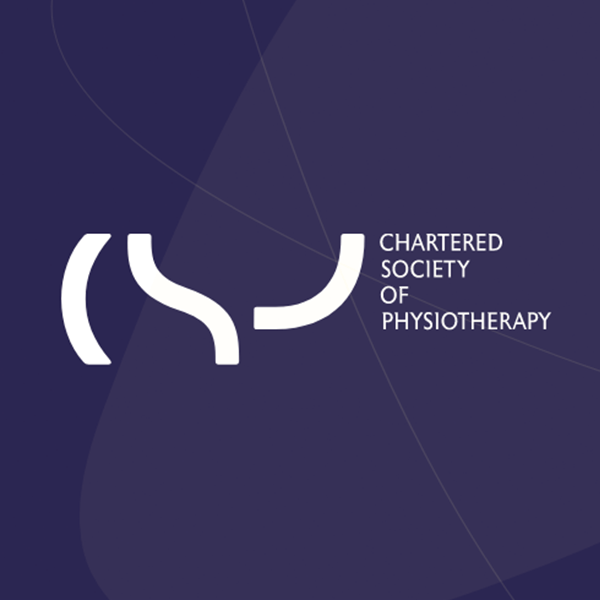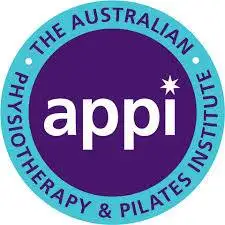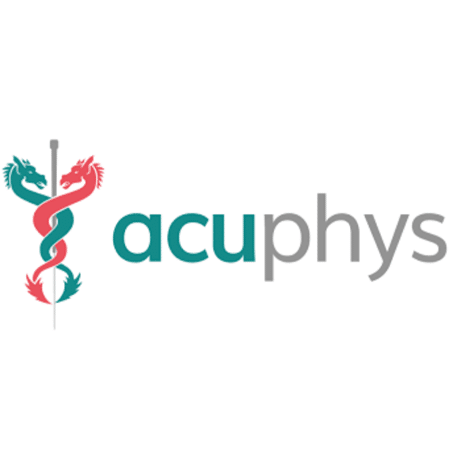Total Knee Replacement
What is a Total Knee Replacement?
A Total Knee Replacement (TKR) is where a damaged knee joint is replaced with prosthetic components in the aim of improving movement, decreasing pain and providing better function and quality of life.
JL PhysioFit
Anatomy of the knee joint?
The knee joint is the largest joint in the body and is comprised of the articulation between the bottom end of the thigh bone (femur) and the top of the shin bone (tibia).
The knee cap (patella) is located on top of these two bones and glides in a groove when you bend and straighten your knee.
The ends of these bones are covered with smooth articular cartilage, a substance that protects the bone and also aids movement.
Between the joint space lies the menisci, one on the inside (medial meniscus) and one on the outside (lateral meniscus). These act as shock absorbers for the knee joint.
Then we have knee ligaments that attach bone to bone and provide stability to the knee. The two main ligaments within the knee joint are your ACL and PCL. Then we have two ligaments that run down either side of the knee joint known as your LCL and MCL.
Finally, we have various muscles that attach in and around the knee joint that allow movement and control of the knee.
Who needs one?
The vast majority of people that end up having a TKR are those in which arthritis has damaged the joint severely. The three most common causes of knee joint damage are osteoarthritis, rheumatoid arthritis and post traumatic arthritis.
The decision to have TKR surgery should be one which is considered carefully and in consultation with medical professionals like your doctor, physiotherapist and consultant.
Avenues like physiotherapy are very important to try as a first measure as they are non-invasive, very effective and help strengthen your knee and hip, which is critical to both pre and post op rehabilitation outcomes.
Generally if you are needing a TKR you will have pain when walking or sitting for long periods, and first thing when you wake which can last for hours. You will most likely struggle with daily activities like going up and down stairs, housework and getting in and out of the car, and your general quality of life will be poor. Medications for pain relief and anti inflammatories will not have a great effect anymore.
An x-ray is the gold standard for determining the severity of arthritis in the knee joint and can be classed as mild, moderate or severe. It must be stressed however, that even if an x-ray deems to show severe OA, this might not correlate to the person experiencing the same level of pain/discomfort. It is very important to take into consideration your goals and motivations for having a TKR, and this would be discussed with your physiotherapist.
How is a TKR surgery done?
Each surgeon may have different or preferred methods so it is important to ask about this prior to your operation. Below is an example of how a typical TKR is done:
- The surgeon removes the damaged ends of the tibia and femur.
- These are then replaced with metal components to recreate the new joint.
- If the surgeon deems it necessary, they may re surface the underside of your knee cap with a plastic button component.
- A medical grade plastic spacer is then positioned between the two ends of the joint to allow for smooth movement of your knee joint.
Pre and post operation Physiotherapy at JL Physiofit?
We work with clients both pre and post-surgery. This allows a number of benefits:
JL PhysioFit
Pre surgery:
Following an initial detailed assessment, we will be better placed to form a plan that suits your needs and works around your life.
We provide all of our clients with a ‘TKR Surgery Booklet’ so they are more prepared for surgery, what it entails and the likely aftercare they need, and what milestones they should be aiming for.
Clients are able to maintain and strengthen the muscles around the knee joint so that it makes recovery more manageable and aids better outcomes.
Forming a team between patient and physio helps to provide a lot of support both physically and mentally for what can be a stressful period of life.
Some patients may improve to the point where they delay their operation.
JL PhysioFit
Post-Surgery:
Assessment of the knee, how it is moving and feeling along with gentle exercises to begin with.
Clear plan in place to start rehabilitation of the knee and working towards key milestones and goals.
Our ‘TKR Surgery Booklet’ will be given to patients and this will help them to understand more about what to do and what not to do as they progress from the early stages of recovery, right through to end stage rehab.
We have the facilities to guide patients through the whole process to ensure best possible outcomes for them.
How long will we work together and what will it look like?
Pre operatively, we will most likely work together for 3-6 months (largely dependent on when your operation is) to ensure we have the best chance of strengthening the hip as much as we can before the operation.
Post operatively, we work with clients a minimum of 3 months but usually beyond this as well. This gives us time to make sure we are on the right track and you are progressing as you should be.
Often in the first few weeks we will be helping you regain movement and ease pain using various hands-on techniques, whilst also building exercises in a manageable way. You will be very clear on what you need to do outside of the sessions.
As the weeks progress, we will develop your exercise programme as well as work with you 1:1 in the rehab room and carry out exercise sessions together.
Once the initial 3 months is up, clients are a lot more confident with their knee and what needs to be done to continue the good work. At this stage we have a conversation about how to manage things going forward.
Often clients end up working with us longer as they want to continue to strengthen under the guidance of a physio. Some clients choose to join one of the Physio Led Pilates classes that we teach here, to continue strengthening and get the most out of their new knee.
How do I get started?
The first step is to book an initial Physiotherapy assessment/first appointment. This will allow us to determine the most appropriate pathway for your situation.
If you are ready to book in then you can either phone the main desk on 0191 814 9717, or use our easy online booking system by clicking here and selecting the ‘Physiotherapy Assessment/First Appointment’ option at a day and time that suits you. You will usually be offered an appointment within 48 hours.
Like to speak to someone first?
No problem, please call the main desk and if needed we can have a physio call you back to discuss your specific situation.
Testimonials
What Our Clients Say
 Paul Scrafton2023-09-21Physio linked to additional stretches/exercises and Pilates at JL Physiofit have improved my core strength and flexibility.
Paul Scrafton2023-09-21Physio linked to additional stretches/exercises and Pilates at JL Physiofit have improved my core strength and flexibility. Rebecca Lowes2023-09-18Michael helped me with leg pain leading up to my first half marathon. I ended up running the whole distance with no pain and was able to enjoy the experience by taking his advice and getting treatment the week before the big run. Would recommend to anyone.
Rebecca Lowes2023-09-18Michael helped me with leg pain leading up to my first half marathon. I ended up running the whole distance with no pain and was able to enjoy the experience by taking his advice and getting treatment the week before the big run. Would recommend to anyone. Neil Taylor2023-09-15Hi , i have had individual physiotherapy by Bev for my back and feet (plantar fascia )and have subsequently been able to join a beginners Pilate class run by Bev . The class is demanding , enjoyable and appropriate to my physical capability.
Neil Taylor2023-09-15Hi , i have had individual physiotherapy by Bev for my back and feet (plantar fascia )and have subsequently been able to join a beginners Pilate class run by Bev . The class is demanding , enjoyable and appropriate to my physical capability. Alison Bailey2023-09-15I thoroughly enjoyed my Pilates class this morning. I found my teacher to be very thorough, aware of each pupils ability and very encouraging. Highly recommended. Thank you .
Alison Bailey2023-09-15I thoroughly enjoyed my Pilates class this morning. I found my teacher to be very thorough, aware of each pupils ability and very encouraging. Highly recommended. Thank you . Sharon Oldroyd2023-09-15Started treatment in September 2022 after hospital appointments with consultant and scans on my left knee. I booked to see Michael as I was having major pain/grinding noise and unable to do exercise or even walk up/down the stairs properly. He assessed my mobility and strength and developed a tailored, gradual rehab program that has helped me to build strength and confidence in my knee as well as helping me slowly get back into exercising. It's made a vast difference working with Michael as I'm not an easy person to work with and always push myself too far. All my exercises were shared via email and accessible via an app. Now I'm exercising 5 times a week, spinning, strength, cardio, HIIT, rowing and running (I can finally use my home gym). Thank you for your patience and understanding my needs. Would highly recommend Michael and JL PhysioFit.
Sharon Oldroyd2023-09-15Started treatment in September 2022 after hospital appointments with consultant and scans on my left knee. I booked to see Michael as I was having major pain/grinding noise and unable to do exercise or even walk up/down the stairs properly. He assessed my mobility and strength and developed a tailored, gradual rehab program that has helped me to build strength and confidence in my knee as well as helping me slowly get back into exercising. It's made a vast difference working with Michael as I'm not an easy person to work with and always push myself too far. All my exercises were shared via email and accessible via an app. Now I'm exercising 5 times a week, spinning, strength, cardio, HIIT, rowing and running (I can finally use my home gym). Thank you for your patience and understanding my needs. Would highly recommend Michael and JL PhysioFit. Diana Robertson2023-08-26I am really enjoying beginners Pilates and feel like I have made good progress. The trainers are very good and it is a positive low-key atmosphere and everyone is friendly and welcoming.
Diana Robertson2023-08-26I am really enjoying beginners Pilates and feel like I have made good progress. The trainers are very good and it is a positive low-key atmosphere and everyone is friendly and welcoming. Julie Tough2023-08-24Enjoying this physio type class, definitely feeling the benefit.
Julie Tough2023-08-24Enjoying this physio type class, definitely feeling the benefit. Moira Luccock2023-08-23Good class today with Michael. Well taught by Michael with options to suit our abilities. Stretching so feel I have progressed. Light hearted banter too - what more could you want! Moira
Moira Luccock2023-08-23Good class today with Michael. Well taught by Michael with options to suit our abilities. Stretching so feel I have progressed. Light hearted banter too - what more could you want! Moira Lesley Hughes2023-08-22Good team that listen to what clients have to say before doing each Pilates class, so if you have a niggle they work with it. Exercises are testing but doable, even if at the time you are not sure about it, and if you can't then they come up with a variation for you to do. Friendly classes and staff.
Lesley Hughes2023-08-22Good team that listen to what clients have to say before doing each Pilates class, so if you have a niggle they work with it. Exercises are testing but doable, even if at the time you are not sure about it, and if you can't then they come up with a variation for you to do. Friendly classes and staff. Nick Winslow2023-08-17I attend pilates regularly and cannot overstate how much I value the advice ,motivation,and fun this provides.There is a real rewarding sense of progression.JL himself is my usual instructor ,but the entire team have an infectious enthusiasm that fosters self improvement.Google rating score: 5.0 of 5, based on 149 reviews
Nick Winslow2023-08-17I attend pilates regularly and cannot overstate how much I value the advice ,motivation,and fun this provides.There is a real rewarding sense of progression.JL himself is my usual instructor ,but the entire team have an infectious enthusiasm that fosters self improvement.Google rating score: 5.0 of 5, based on 149 reviews





